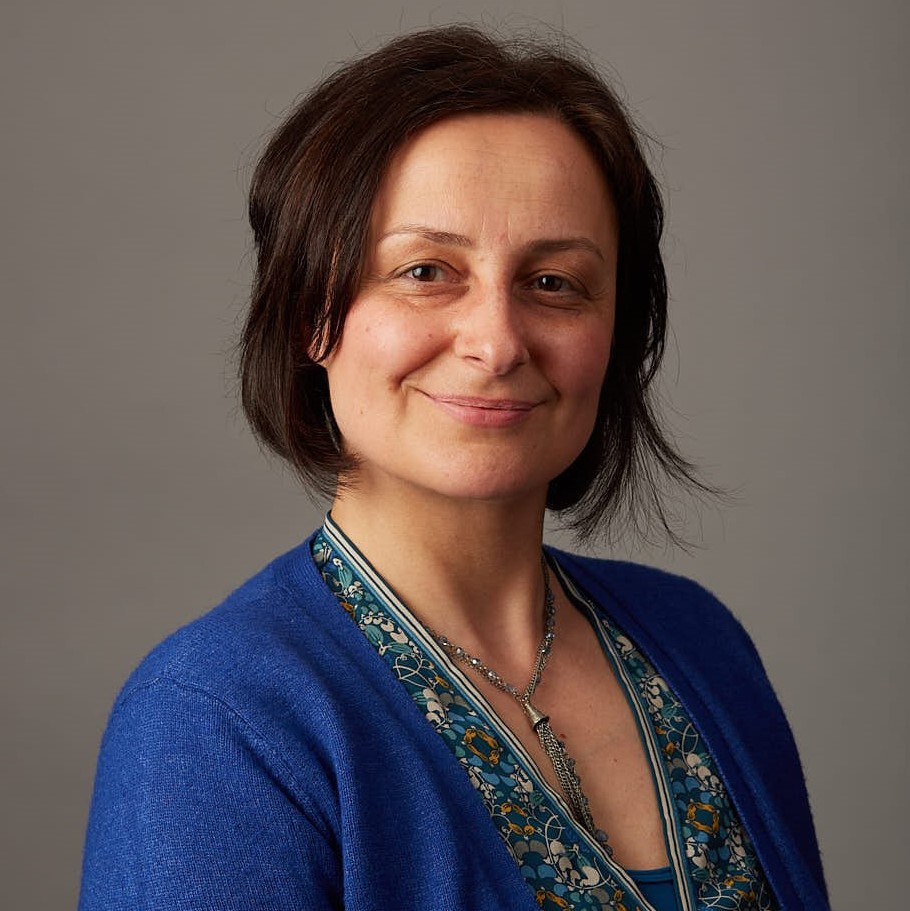5 mins read

Related topics
Sector specialist Maria Varbeva-Daley works with external stakeholders and UKAS experts to advance the role of UKAS accreditation in the three key areas of energy, environment and sustainability to enable the transition to a more sustainable, just, net zero society. Our interview with Maria, who joined UKAS in 2023 sheds more light on her role and our work as the UK’s Accreditation Body in these important areas.
How does your role at UKAS support net zero targets?
Proactively increasing the presence of accreditation and standards in energy, environment and sustainability initiatives, nationally and internationally, will put a spotlight on the quality infrastructure measures that can be used by government, business and the innovation community to support their ongoing efforts to cut greenhouse gas emissions and ensure a more sustainable future for everyone.
Many organisations, including UKAS, have a target of becoming carbon neutral by 2030, meaning that their carbon emissions are removed or reduced as much as possible and any residual emissions are effectively and credibly offset. This is in line with UK government’s net zero by 2050 target.
The UK is considered to be doing well in greenhouse gas emission mitigation, according to the latest United Nations’ Climate Change Report, but more needs to be done to achieve its legally binding target of net zero by 2050.
What influences your work in this area?
Much of my work in this space is informed by research and stakeholder engagement around key market trends and drivers, looking at the challenges and opportunities that standards and accredited conformity assessment can help address.
Some of my previous work in the energy space is informing the engagement and development approach I’m taking in my new UKAS role. For example, hydrogen. This has been used as a clean energy source for a while, albeit not at scale, and is a key accreditation focus and priority for us. We are currently looking to support the UK Government’s commitment to low carbon hydrogen production and the increased use of hydrogen to decarbonise the heating sector.
In carrying out work in all three areas, an important consideration is the needs of businesses and consumers, particularly those who are vulnerable, as well as wider societal challenges and opportunities to further sustainable and just economic and social development.
What is your background?
Before joining UKAS I worked for BSI (British Standards Institution), leading first the sustainability, then energy sector work. My work in sustainability involved looking at critical innovation themes and opportunities with the potential to deliver system-wide change, such as the circular economy, social value creation, sustainable finance, natural capital valuation, as well as climate change mitigation and adaptation. My energy work revolved around themes such as energy innovation and energy decarbonisation, with a focus on energy system flexibility, energy resilience, energy storage, smart grids and systems, electrification of transport and the hydrogen economy.
These roles involved working with a wide range of stakeholders – government, policy makers and regulators, business leaders, academia, NGOs, consumer and public interest groups, aiming to bring these communities together to collaborate and share best practice, and to identify where to focus new standards knowledge and development effort.
At BSI, my work also involved close collaboration and alignment with international initiatives and partners, as well as other leading organisations within the UK’s quality infrastructure, such as UKAS and NPL (National Physical Laboratory).
What are you most proud of?
There are two initiatives that I would pick out. The first is helping to design and launch BSI’s sustainable finance programme and establishing the UK as a leader in this field. This involved working in the international arena and creating an integrated approach that links finance to sustainability.
The second, much earlier piece, is working on the development of the PAS 2050 standard. This became the first internationally recognised and used standard for product carbon footprinting and forms part of a much wider family of standards for greenhouse gas mitigation, and of course links to ISO 14065:2013 – the greenhouse gas validation standard that UKAS accredits to. At the time PAS 2050 was created, UKAS was a key stakeholder in the conversation, rolling out a PAS 2050 accreditation scheme to underpin and give credibility to PAS 2050-based conformity assessment.
What other areas does UKAS accredit in this space?
UKAS has a wide presence across the energy, environmental and sustainability sectors and well-established programmes that cover GHG emissions management (carbon footprinting and carbon neutrality; emissions trading; carbon removals and climate action in specific sectors); energy efficiency and waste management; agriculture, biodiversity and ‘natural capital’, microgeneration.
I am currently working closely with colleagues across the business to identify other areas where UKAS accreditation can help scale up the effort and create credibility and trust in evolving markets.
More information about UKAS’s work in this area can be found in this article.
How did your journey into the field of sustainability begin?
I originally studied law in my home country of Bulgaria and worked for a renown law firm in the area of environmental protection, which is where my passion for sustainability started. When I moved to the UK with my husband, an American who I met in Bulgaria, I decided to widen my focus, so I studied for an MSc in environmental management, policy and regulation.